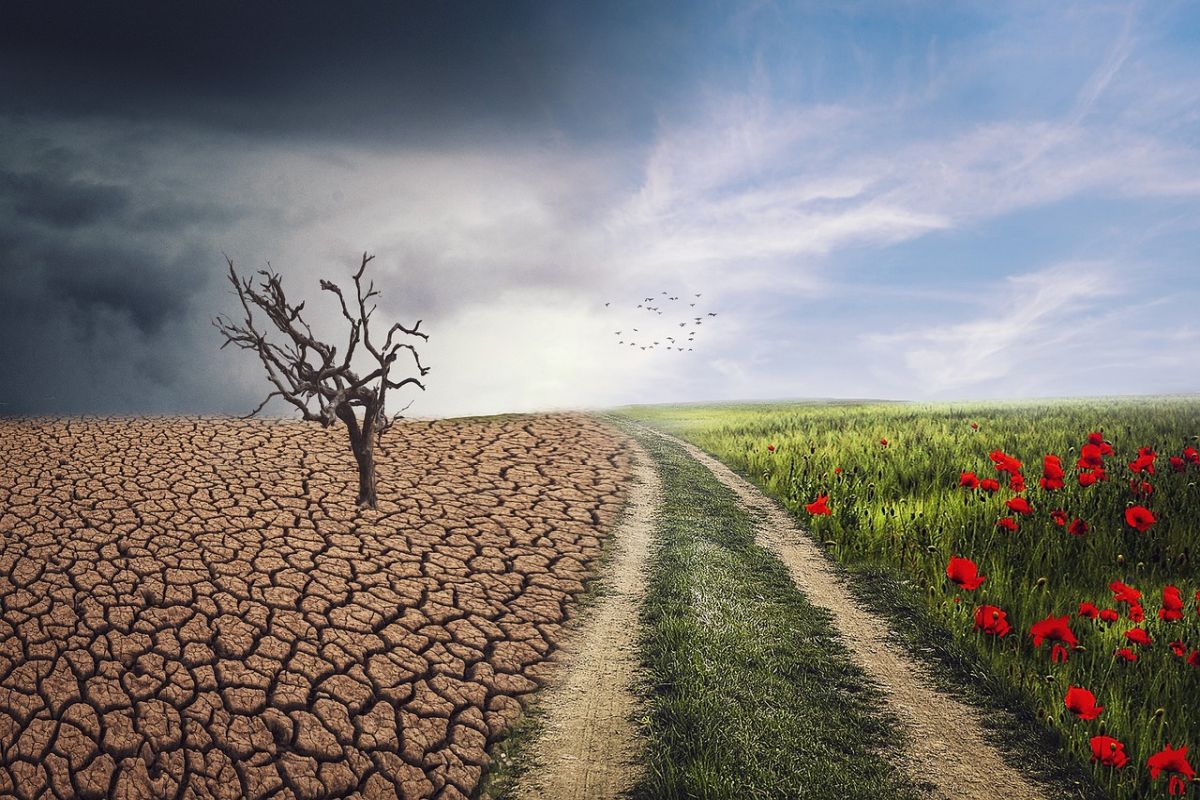New Warnings on the Climate Situation
In the case of climate, we are not the dinosaurs. We are the meteorite

Corina Cristea, 14.06.2024, 13:27
Humans, guilty for climate warming, represent the same “danger” for our planet as “the meteorite that exterminated the dinosaurs”. The assessment was made by the Secretary General of the UN, Antonio Guterres, in a speech delivered in New York on the occasion of World Environment Day. “In the case of climate, we are not the dinosaurs. We are the meteorite. We are not only in danger, we are the danger itself,” Guterres insisted, criticizing in particular the fossil fuel sector (coal, oil, gas), “the godfathers of climatic chaos”. Reiterating his call for taxing the sector’s profits to fund the fight against climate warming, he even advanced the idea of banning advertising for fossil fuel companies. “It is a critical moment for the climate”, Antonio Guterres emphasized, urging humanity “to head for the exit ramp of the highway that leads to hell”, in the context in which the signatory countries of the Paris Agreement must set their targets by the beginning of 2025 new objectives regarding the reduction of greenhouse gas emissions.
“We are playing Russian roulette with the planet. And we need an exit ramp off this highway to climate hell. And the truth is we have control of the wheel. 1.5 degree limit is still just about possible.”
We are in a moment of truth, the battle for a living planet will be won or lost this decade, according to Guterres, who called on world leaders to take immediate action, including huge cuts in global warming pollution and an immediate end to any new coal projects. He also urged rich countries to commit to ditching coal by 2030, cut oil and gas by 60 percent by 2035, and increase the flow of finance to the poorest and most climate-vulnerable nations. He added: “We cannot accept a future where the rich are protected in air-conditioned bubbles while the rest of humanity is buffeted by lethal weather in unlivable territories,”. His views are backed up by statistical data – more than 60,000 people died from heat last year in Europe, and researchers warn that, if no action is taken, the number of deaths could reach 100,000 by 2040. In an interview for Euronews, Carlo Buontempo, director of Copernicus – the EU’s climate monitoring service – also warned of the extreme situation:
“Heat related mortality in Europe has gone up by 30% over the last 20 years, and this is related to the rise in temperatures, it is related to the heat waves. We should expect the temperatures to be going up, we should expect the temperatures in the next five years to be higher than in the last five years, and this will continue.”
According to Copernicus’ announcement in June, accelerated global warming has set a record – 12 consecutive months of record monthly average temperatures worldwide. The year-long heatwave is “shocking but not surprising” given human-caused climate change, said Carlo Buontempo, who warned that worse was yet to come, unless fossil fuel pollution is reduced. The Copernicus data showed that every month since July 2023 has been at least 1.5 degrees warmer than pre-industrial temperatures, when humans began burning large amounts of fossil fuels. Considered the main cause of climate change, carbon dioxide emissions from burning these fuels hit a record high last year, despite global agreements to limit their release and a rapid expansion of renewable energy.
The planet is warming, and the heat is leading to more precipitation and the melting of sea ice, which produces extreme weather conditions, which can cause problems in agriculture, mass migration, and harmful consequences for health, experts in the field explain, drawing attention that the latest climate data shows the world is “far” from its goal of limiting warming to 1.5C – the key target of the 2015 global Paris Agreement. The Earth is warming at an unprecedented rate, and temperatures have reached extraordinary values, warn scientists, who have carried out a new study of heat waves recorded in 2023, and say that extreme weather phenomena will become more frequent, and entire species of animals and plants are in great danger. Lethal heat waves, floods, hurricanes and other extreme conditions have already worsened with climate change, but although exceeding the average by 1.5 degrees every month for about a year indicates a worrying trend, experts say it will take several years of high temperatures for the world to officially surpass this benchmark. Furthermore, there is still the possibility of stopping these temperature increases – “The climate threshold of 1.5°C is not like a light switch that turns on all kinds of climate calamities. But for every little bit of additional warming, the risk of negative impacts gets worse”. This is according to the website of the US National Oceanic and Atmospheric Administration.






























